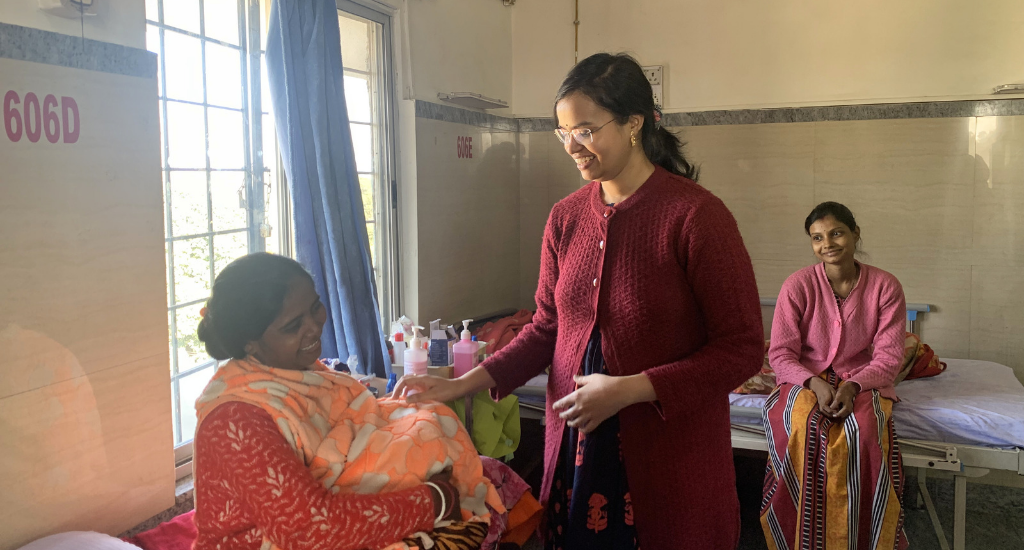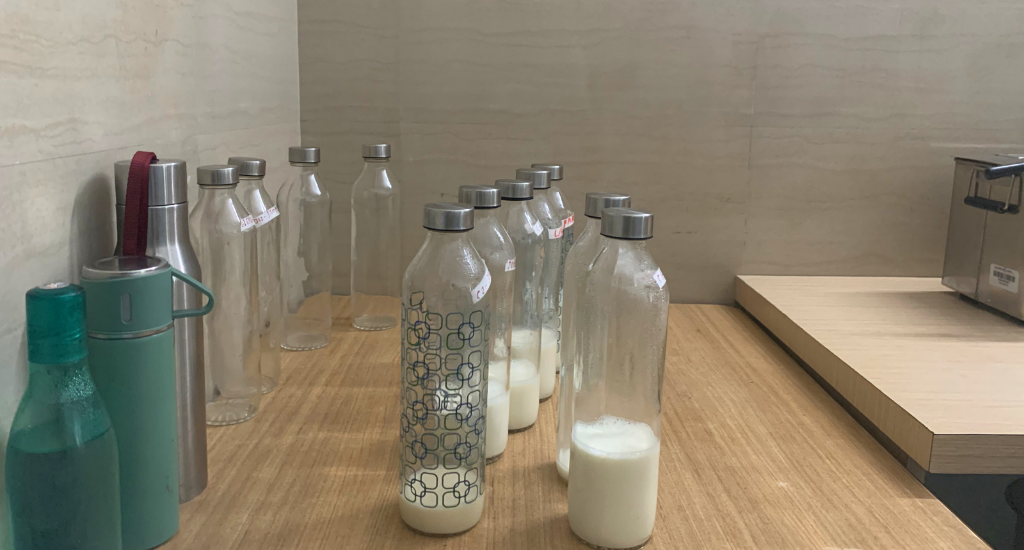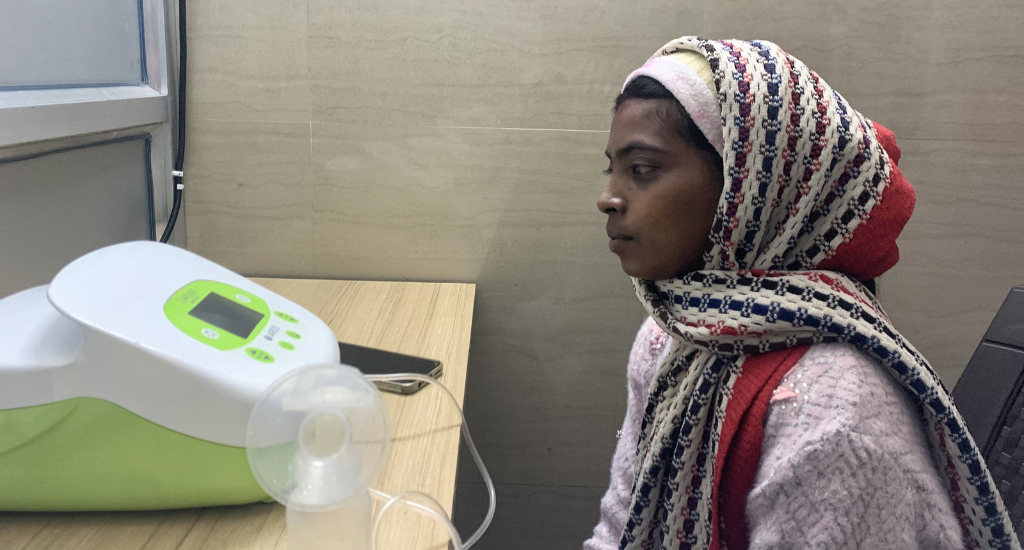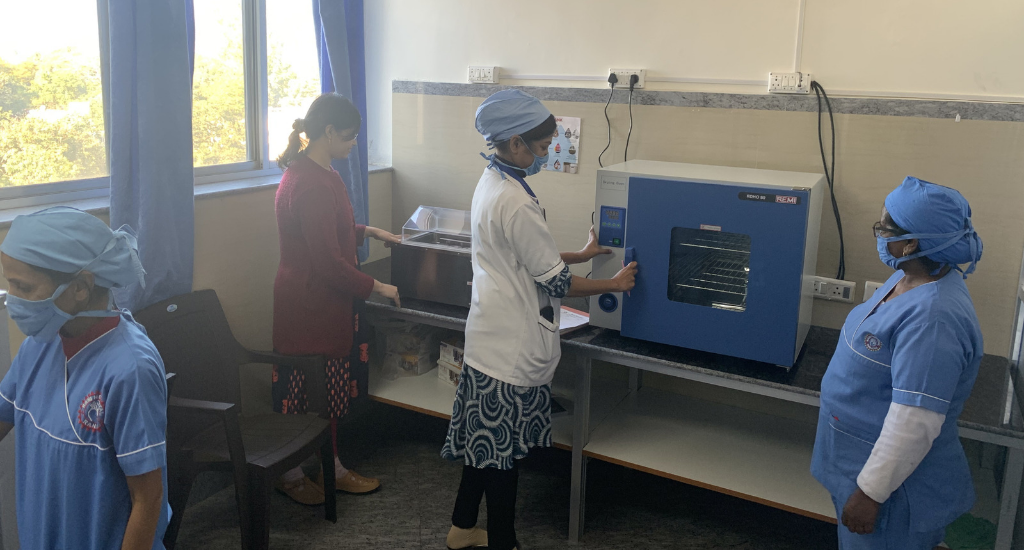
Jharkhand’s first breast milk bank for premature babies
Rani Hospital in Ranchi offers a lifeline for vulnerable newborns, ensuring pasteurised breast milk for them, promoting health, reducing infections and fostering a community of selfless donors.

Rani Hospital in Ranchi offers a lifeline for vulnerable newborns, ensuring pasteurised breast milk for them, promoting health, reducing infections and fostering a community of selfless donors.
Let’s face it — “Agar maa ka doodh piya hai to (If you have had mother’s milk)”… This oft-repeated dare in Bollywood movies unconsciously promotes breast milk, boldly and beautifully transcending conventional scriptwriters’ limitations.
Breast milk contains anti-microbial and anti-inflammatory substances that help prevent ailments such as diarrhoea, which can be fatal to infants, and promote long-term health in ways that dairy-based formulas do not.
However, ailing or anaemic mothers and those who deliver early may be unable to breastfeed right away if their milk hasn’t come in yet, and they may also have a low milk supply because preemies are often unable to nurse efficiently to stimulate milk production.
What happens when a mother is unable to breastfeed her baby, due to illness or other problems? Rani Hospital in Ranchi has the answer.

Known for its paediatric care services, the hospital has now ushered in a transformative era with the inauguration of Jharkhand’s first breast milk bank, marking a significant stride in healthcare and social responsibility. This initiative extends a lifeline to infants born prematurely or weighing below 1.5kg who lack access to breast milk.
The architects behind this noble endeavour are Dr Rajesh Kumar and Dr Soni Sinha, medical directors at Rani Hospital, who envisioned a realm where every newborn, especially those born prematurely or underweight, can thrive through the nourishment of breast milk.
Also Read: Why the golden hour of breastfeeding is important
Dr Snigdha Samanta, head of operations for the milk bank, has a dedicated team to ensure the success of this initiative.
“Mother’s milk is rightly and widely regarded as liquid gold. Benefits of this milk bank are immense. Donors’ pasteurised milk will bridge the gap of providing mother’s milk and also reduce deadly infections and necrotising enterocolitis in this vulnerable population by half,” Samanta said.
The process begins with identifying willing and healthy mothers who selflessly donate their milk. With a personal counselling session, devoid of coercion or monetary motives, the donors proceed to contribute through the hospital’s in-house breast pump.

Komal Kumari, a dedicated donor, views this initiative as a vital lifesaver.
“Mother’s milk is crucial for a child’s survival. I happily contribute my milk after nursing my baby, ensuring it’s available for those in need. We receive continuous guidance from Dr Samanta and nursing superintendent Shobha R,” Komal Kumari said.
Each donation undergoes rigorous testing in the laboratory to ensure its viability and freedom from bacteria or infections.
“Donated milk can be preserved well for at least three months at -20 degrees Celsius in a deep freezer,” Samanta explained.
The donated milk, once deemed fit, undergoes pasteurisation before reaching the tiny recipients. The hospital’s commitment to hygiene extends to the sterilisation of utensils used for donation, ensuring each drop is free from contaminants.
Also Read: Bhunjia women need better care after childbirth
The ripple effect of the breast milk bank transcends its physical boundaries.

“We see a lot of premature babies delivered here, with weight varying from 700 to 800 grams. With our milk bank, we want to supply pasteurised milk to these babies, significantly increasing their immunity and weight,” said medical supervisor Julie Devi.
Samanta conducts regular classes on kangaroo mother care and breastfeeding. These sessions reach mothers in the remotest areas, imparting crucial knowledge on ensuring their child’s safety from infections and nurturing them to optimum health.
Kangaroo care involves direct skin-to-skin contact between the newborn and mother, exclusive breastfeeding and attentive follow-up care at home. This enhances survival chances for premature and underweight newborns. The World Health Organization promotes this practice to reduce infant mortality.

Such care is significant in Jharkhand, which has a reported institutional delivery rate of 19.2 percent, notably lower than the national average of 40.7 percent, according to the National Family Health Survey- II. Besides, the prevalence of anaemia in women stands at 70.6 percent.
Also Read: Rural women are unaware of the risk of breast cancer
In the weekly classes, both parents are educated separately, underscoring the importance of milk donation. The response is heartening, with mothers actively participating not only to safeguard their own child but to extend a lifeline to another through their milk.
As the hospital embraces a future where hope thrives in every drop, the first human milk bank becomes a sanctuary where dreams of a healthier tomorrow take flight.
The lead image at the top shows a mother feeding her newborn at Rani Hospital in Ranchi. (Photo by Devashish Biswal)